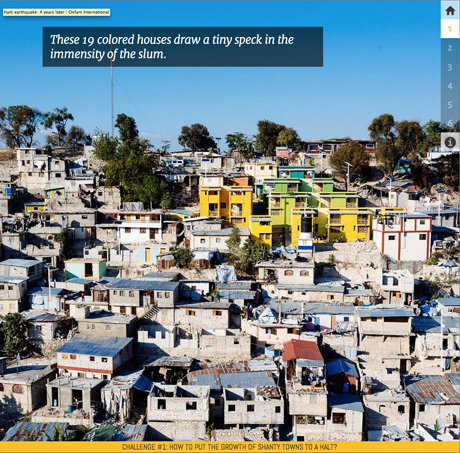
The European Journalism Centre (EJC) has announced its fifth round of Innovation in Development Reporting grants, with nearly $2 million (£1.3m) available for applications which meet the revised criteria.
With the expiry of the UN Millennium Development Goals this year, senior project lead Antoine Laurent said a new editorial approach in challenging the traditional media coverage of developing countries would be central in how grantees are selected.
"The Ebola outbreak was a very good example of all the coverage about African countries," Laurent told Journalism.co.uk. "Although they are very diverse and the continent is huge, with many different types of realities and economic situations, suddenly all of the coverage about this continent is linked to this very difficult and very negative and bloody crisis."
Once crises or catastrophes have run their initial course, the coverage ends, said Laurent. Journalists or news organisations tend not to return until the next disaster, or to oversimplify a single success story.We want to not just create awareness but also showcase best practice and get people involvedWilfried Ruetten, European Journalism Centre
"We had one member in the advisory council who said we're not looking for Wikipedia entries here," said Wilfried Ruetten, director of the EJC. "We need real stories, not just one NGO doing one great thing in one country and that is the best example. It is more complicated than that."
As well as the original editorial approach for the new era of the UN's Sustainable Development Goals, Laurent said applicants should be innovative in how they approach telling their stories with interactive elements, data visualisation, newsgames or "multiplatform formats".
"Of course we are interested in that because we think it's a good way to reach modern audiences," he said. "People reading on their mobile phones, on their tablets, on their desktop or any other platforms. To reach them and motivate people to read and share stories."
A transnational element, considerations around how the story is distributed and clearly defined goals regarding the impact of the journalism will all also be necessary for projects to receive funding.

Screengrab from Rebuilding Haiti, a newsgame which received funding from the EJC Innovation in Development Reporting programme
Since the first round of funding in 2013, the Innovation in Development Reporting programme has supported more than 50 projects with between €15,000 (£11,500) and €20,000 (£15,300) each.
The deadline for the current round of funding is 25 February, but the $1.7 million (£1.1m) provided by the Bill and Melinda Gates Foundation will fund a further three rounds into 2016.
"We want to not just create awareness but also showcase best practice and get people involved," said Ruetten, with a focus on taking the story beyond its initial publication and making it sustainable as well.
A previous winning project looking at 'the dark side of Italian tomatoes' was published in five countries but also became a roadshow of lectures and exhibitions, explained Ruetten.
"So there's this idea of the story as an asset," he said. "It's not just this one time publication and that's it, which is a traditional print medium idea.
"But [it's about] being more sustainable, shared across the web, and not stopping the project once the first story has come out. So trying to get away from this one-off thing if possible."
Free daily newsletter
If you like our news and feature articles, you can sign up to receive our free daily (Mon-Fri) email newsletter (mobile friendly).









